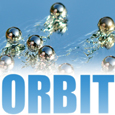Developing Language in Primary Science: Difference between revisions
SimonKnight (talk | contribs) No edit summary |
SimonKnight (talk | contribs) No edit summary |
||
| Line 26: | Line 26: | ||
|resources= [[file:Developing Language in Primary Science.doc]] | |resources= [[file:Developing Language in Primary Science.doc]] | ||
}} | }} | ||
[[Category:Primary]] [[Category: Science]] | [[Category:Primary]] [[Category: Science]] [[Category: Teacher Education]] | ||
Revision as of 14:19, 18 July 2012
About. The resource:
- explains the relationship between language and the curriculum
- Outlines some links between language skills and science, offering examples of science work which could develop speaking and listening, reading, and writing skills
- Outlines some examples of activities which develop children's use of language in science – 'moving things' and 'materials'
- Offers some advice on long-term planning for the development of language skills in science by: a) reviewing what you already do, b) plan for greater emphasis c) identify what else happens in school, d) evaluating how successful you are.
Pedagogical content. The resource would be particularly useful for PGCE students thinking about incorporating cross-curricular(subject) strands, or teachers looking to do the same, either in their own practice or in new curriculum development(topic) work.
Language development and the use of appropriate vocabulary(ta) is highlighted as important across the curriculum. Incorporating this consideration into science planning(ta) is important for meeting the target of developing language. The importance of language and talk in science – including through group work(ta), and Whole class(ta) dialogue – is highlighted elsewhere (and in the resource) but includes the ability to explain concepts, understand synthesising ideas (including those from other people and texts), and the need to read and write for different purposes, (including conceptual understanding, data presentation, etc). These are key ideas in communicating the scientific method(ta) (edit)
| Resource details | |
| Title | Developing Language in Primary Science |
| Topic | [[Topics/Literacy|Literacy]], [[Topics/Curriculum development|Curriculum development]] |
| Teaching approach | [[Teaching Approaches/Whole class|Whole class]], [[Teaching Approaches/Language|Language]], [[Teaching Approaches/Group work|Group work]], [[Teaching Approaches/Planning|Planning]], [[Teaching Approaches/Scientific method|Scientific method]] Language development is highlighted as important across the curriculum]] |
| Learning Objectives | By the end of the session you should be able to:
|
| Subject | [[Resources/Literacy|Literacy]], [[Resources/Teacher education|Teacher education]], [[Resources/Primary|Primary]], [[Resources/Science|Science]], [[Resources/Cross-curricular|Cross-curricular]] |
| Age of students / grade | [[Resources/Primary|Primary]]
|
| Related ORBIT Wiki Resources | |
| Files and resources to view and download |
|

